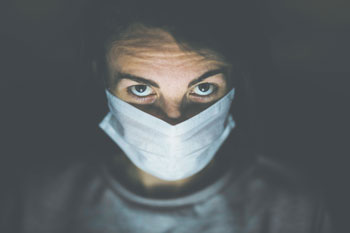 North Carolina has begun a tentative process of opening up selected businesses, as have many other states — some more aggressively than others, even though confirmed cases of COVID-19 continue to rise. As we do so, we are also still learning what we do not know about this novel virus. Here are some of the unanswered questions.
North Carolina has begun a tentative process of opening up selected businesses, as have many other states — some more aggressively than others, even though confirmed cases of COVID-19 continue to rise. As we do so, we are also still learning what we do not know about this novel virus. Here are some of the unanswered questions.
Are people who have recovered from COVID-19 actually immune from an-other bout of it? Can they still pass along the infection to others even though they themselves are well?
What about children? Does the virus infect them differently than adults? At the time of this writing, North Carolinians who have been infected range in age from 6 months to 85 years.
Why do symptoms vary so much from person to person, with some people critically ill and others only mildly so? Does it depend on the concentration of viral particles in one’s body?
Why does COVID-19 kill more men than women?
Does COVID-19 cause lasting damage to the bodies of survivors?
Researchers are digging for answers for these and other questions, of course, as well as working overtime to develop a vaccine or vaccines. We do know a great deal about the pandemic, though, and it is not a pretty picture. COVID-19 has pulled back the curtain on our nation’s health care system, who it serves well and who it does not. It reveals longstanding social and economic disparities long swept under the rug.
Common sense tells us that service workers face more exposure than people who can work remotely, and many service workers are considered essential during the pandemic. They are also often hourly workers, often minority workers, facing the stark choice of working in dangerous environments because they need the income or not being able to support their families. Service jobs are almost always low pay and with little or no employee control over working hours, a significant hurdle for working mothers.
Consider what kinds of work have been deemed essential during the pan-demic. Health care workers, including nursing home and elder care aides; child-care workers; teachers; domestic workers; all occupations heavily populated by women and all of which put workers in direct contact with others. These jobs of-ten require intimate work for others, work that has historically been done by women and has been historically undervalued and underpaid.
The cold hard reality is that millions of Americans depend on these service workers to take care of our children and our elderly parents, to prepare our food and to sell us goods and services, but we do not respect their work. We ask and expect them to do work we do not — and perhaps would not — do ourselves, and we are unwilling to pay them fairly. It brings up the ugly truth that underpaid and often dangerous care work is what allows other Americans, both women and men, to do their jobs at any time, and even more so during the pandemic.
This is not new news.
Speculation abounds as to how our society will be changed, even trans-formed, on the other side of COVID-19. What will education look like? Will we go shopping in stores again? Will nonchain restaurants survive the pandemic?
Whatever else the virus has done and perhaps will do, it has shown a laser light on care industries and their feminine and insecure faces. Care work is absolutely essential work, but it is undervalued because women do it. The COVID-19 pandemic is a lesson in why that has to change.

 How to resolve AdBlock issue?
How to resolve AdBlock issue? 








